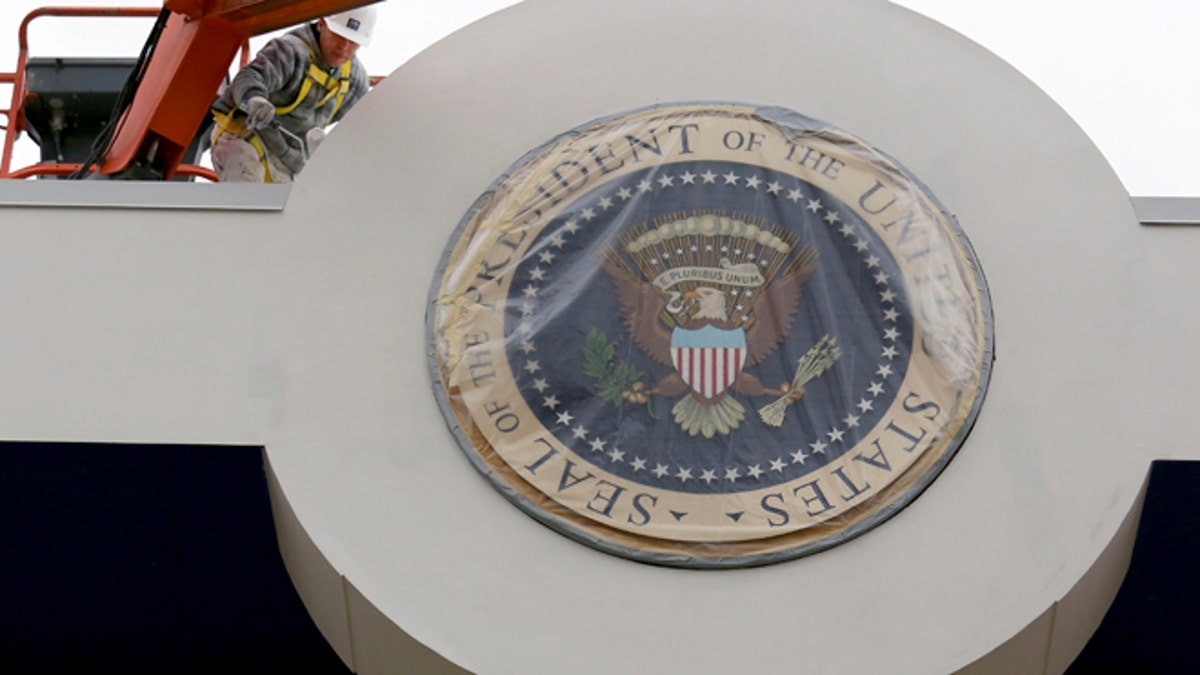
Dec. 20, 2012: A painter touches up the presidential viewing stand in front of the White House for President Obama's second inauguration. (AP)
The inaugural oath will be the same, but there have been some big changes in how the event will be paid.
President Obama made a point in 2009 to reject big-dollar donations from corporations to finance his inauguration. This year, however, as he prepares for his second inauguration Jan. 21, the Presidential Inaugural Committee is logging donations from heavy hitters in the business world, including AT&T and Microsoft.
More than 400 donors have given money, according to the latest list posted to the committee's website. Most of the donors are individuals, but the committee has said it will accept unlimited sums of corporate money to pay for Obama's inauguration.
Money from lobbyists, political action committees or foreign donors will not be accepted.
Obama had banned corporate donors for his 2009 inauguration, but Reuters noted he still raised a record $53 million. The same restrictions applied to the 2012 Democratic National Convention in Charlotte, N.C., last September. The move was designed to give the president's supporters ownership of the events.
The shift for the 2013 inauguration comes after the most expensive presidential campaign in history.
Donations were capped at $50,000 in 2009. This year's organizing committee has encouraged individual gifts of $250,000, Reuters reported.
Even so, the White House has said it will downsize the festivities this year, with fewer people expected to attend the inauguration and only two official balls planned.
The subdued celebration is a big cut in reveling from the 10 balls Obama attended four years ago. Planners say the austerity in festivities is a reflection of tough economic times and an effort to minimize the burden on law enforcement, other security personnel and Washington residents.
Under the Constitution, the president's second term begins Jan. 20 at noon, but he'll be sworn in privately at the White House -- with limited media coverage -- since inaugural celebrations traditionally aren't held on Sundays.
The Associated Press contributed to this report.




